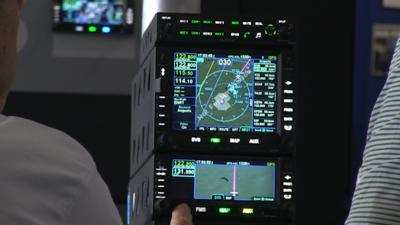Mon, Jul 08, 2019
Agency Assures Pilots That They Will Not Be Responsible For Circumstances Beyond Their Control
A document published in the Federal Register by the Department of Transportation establishes the FAA's policy on performance requirements for certain operations of aircraft with Automatic Dependent Surveillance-Broadcast (ADS-B) Out equipment in ADS-B airspace after January 1, 2020.

Under the circumstances identified in the policy, the FAA is providing assurance to operators that it will not consider degradation in Global Positioning System performance due to conditions outside the operator's control that results in an operation falling below ADS-B rule requirements to constitute non-compliance, provided the operator has exercised appropriate due diligence prior to conducting an operation.
According to the published document, there are circumstances outside of an operator's control that may result in a temporary degradation of GPS performance and an apparent violation Federal Aviation Regulations. Those circumstances are discussed in detail in the document linked below.
An operator may exercise due diligence in performing a preflight availability prediction for its intended route of flight but experience rerouting by ATC after obtaining an initial ATC route clearance, which may cause an unanticipated degradation of performance. Additionally, an operator may encounter actual GPS interference on its intended path of flight, which would affect the ability of an aircraft to meet the performance requirements of § 91.227. Lastly, an operator may not be able to complete a preflight availability prediction for its intended route of flight due to the FAA's SAPT being out of service.
As is explained in the document, the FAA recognizes that these situations are outside of the operator's control. Therefore, the FAA will not consider these events to constitute noncompliance with § 91.227 due to the circumstances discussed in this document to the extent such an application would impose a standard of conduct wholly outside the operator's control.
(Source: Federal Register. Image from file)
More News
Takeoff Roll The process whereby an aircraft is aligned with the runway centerline and the aircraft is moving with the intent to take off. For helicopters, this pertains to the act>[...]
“We’re proud of the hard work that went into receiving this validation, and it will be a welcome relief to our customers in the European Union. We couldn’t be mor>[...]
"Aircraft Spruce is pleased to announce the acquisition of the parts distribution operations of Wag-Aero. Wag-Aero was founded in the 1960’s by Dick and Bobbie Wagner in the >[...]
IDENT Feature The special feature in the Air Traffic Control Radar Beacon System (ATCRBS) equipment. It is used to immediately distinguish one displayed beacon target from other be>[...]
Aero Linx: Pararescue Air Force Pararescuemen, also known as PJs, are the only DoD elite combat forces specifically organized, trained, equipped, and postured to conduct full spect>[...]
 ANN's Daily Aero-Term (05.10.24): Takeoff Roll
ANN's Daily Aero-Term (05.10.24): Takeoff Roll Aero-News: Quote of the Day (05.10.24)
Aero-News: Quote of the Day (05.10.24) Aero-News: Quote of the Day (05.11.24)
Aero-News: Quote of the Day (05.11.24) ANN's Daily Aero-Term (05.11.24): IDENT Feature
ANN's Daily Aero-Term (05.11.24): IDENT Feature ANN's Daily Aero-Linx (05.11.24)
ANN's Daily Aero-Linx (05.11.24)



